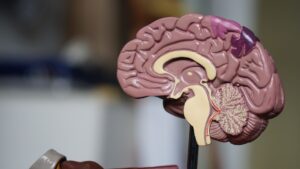ABA Therapy is a widely recognized and widely used therapy for children with Autism Spectrum Disorder (ASD). The treatment focuses on breaking down complex behaviors into smaller, more manageable steps and using positive reinforcement to teach new skills. Although ABA therapy has been shown to be effective for many children with ASD, it has recently faced controversy due to concerns about its methods and approach.
One of the main criticisms of ABA is that it can be overly rigid and focused on compliance rather than true understanding. Critics argue that ABA encourages children to behave in certain ways without understanding why they are doing so, leading to a lack of true comprehension and autonomy. However, ABA practitioners argue that the therapy is not about forcing compliance, but rather about providing children with the skills they need to function in society.
ABA focuses on teaching children the skills they need to interact with the world around them, including social skills, communication skills, and academic skills. By breaking down complex behaviors into smaller steps and providing positive reinforcement, ABA therapists help children to build confidence and independence, which can improve their overall quality of life.
Another criticism of ABA is that it can be harmful to children. Some critics argue that ABA can be traumatic and abusive, particularly when children are subjected to intense levels of behavior modification or punishment. However, ABA practitioners argue that these criticisms are based on outdated and inaccurate information about the therapy. Modern ABA techniques are designed to be gentle and compassionate, with a focus on positive reinforcement and building relationships between therapists and children. ABA therapists work closely with families to ensure that children are receiving the support and care they need to thrive.
Despite these criticisms, there is no denying the positive impact that ABA therapy can have on children with ASD. Studies have shown that ABA can improve a wide range of skills in children with autism, including language and communication, social interaction, and academic performance.
Children who receive ABA therapy are more likely to succeed in school and develop meaningful relationships with peers and family members. ABA has also been shown to be effective in reducing challenging behaviors such as aggression, self-injury, and tantrums, which can improve the overall quality of life for both children and their families.
It is important to note that ABA therapy is not a one-size-fits-all approach, and it may not be the best option for every child with ASD. However, for many children, ABA can provide the support and structure they need to thrive and reach their full potential. ABA practitioners work closely with families to develop individualized treatment plans that are tailored to the unique needs and abilities of each child. This approach ensures that children are receiving the support and care they need to succeed.
Benefits of ABA therapy
- ABA therapy has been proven to be effective in improving a wide range of skills in children with Autism Spectrum Disorder (ASD), including language and communication, social interaction, and academic performance.
- ABA therapy uses positive reinforcement to teach new skills and behaviors, which can boost a child’s confidence and independence.
- ABA therapy is tailored to the individual needs and abilities of each child, ensuring that they are receiving the support and care they need to succeed.
- ABA therapy can help to reduce challenging behaviors such as aggression, self-injury, and tantrums, which can improve the overall quality of life for both children and their families.
- ABA therapy can help children with ASD to develop the skills they need to navigate the world around them with confidence and independence, improving their overall quality of life.
- ABA therapy involves working closely with families to develop individualized treatment plans that are tailored to the unique needs and abilities of each child, ensuring that they are receiving the support and care they need to thrive.
- ABA therapy is based on the principles of behavior science, which have been extensively researched and proven to be effective in changing behavior.
- ABA therapy can be adapted to suit the unique needs of each child, meaning that it can be effective for children with a wide range of abilities and challenges.
- ABA therapy involves ongoing data collection and analysis, which can help to track progress and adjust the treatment plan as needed.
- ABA therapy can provide children with ASD with the skills they need to succeed in school and develop meaningful relationships with peers and family members.
ABA therapy is a valuable and effective treatment option for children with ASD. While there are certainly valid criticisms of the therapy, it is important to recognize the many benefits that it can provide for children and families. By focusing on positive reinforcement and individualized treatment plans, ABA therapists help children with ASD to develop the skills they need to navigate the world around them with confidence and independence. As the field of ABA continues to evolve and improve, it will undoubtedly remain an important part of the toolkit for families and practitioners working to support children with autism.
For a more in-depth guide to what ABA is, check out Autism Speak’s Parent Guide to ABA.



